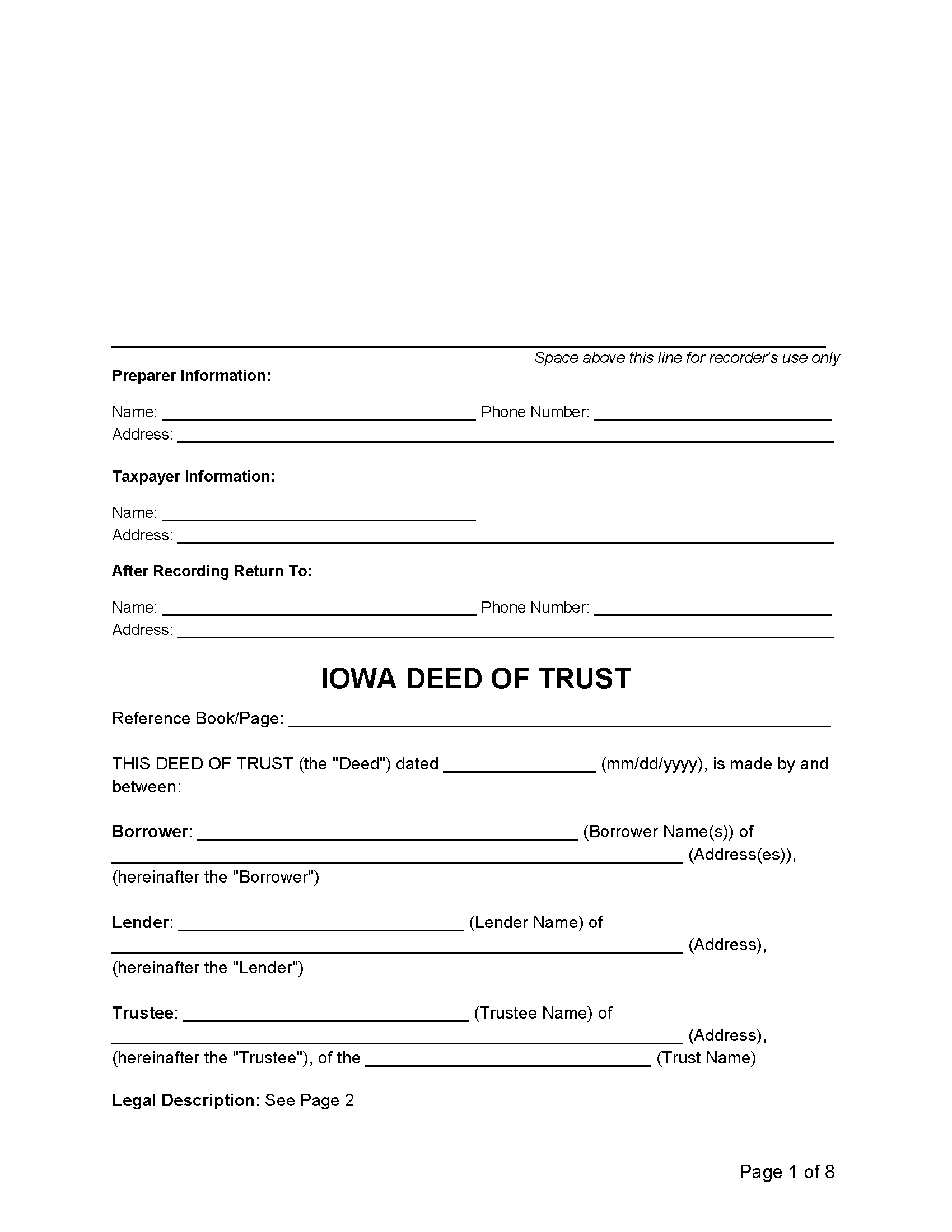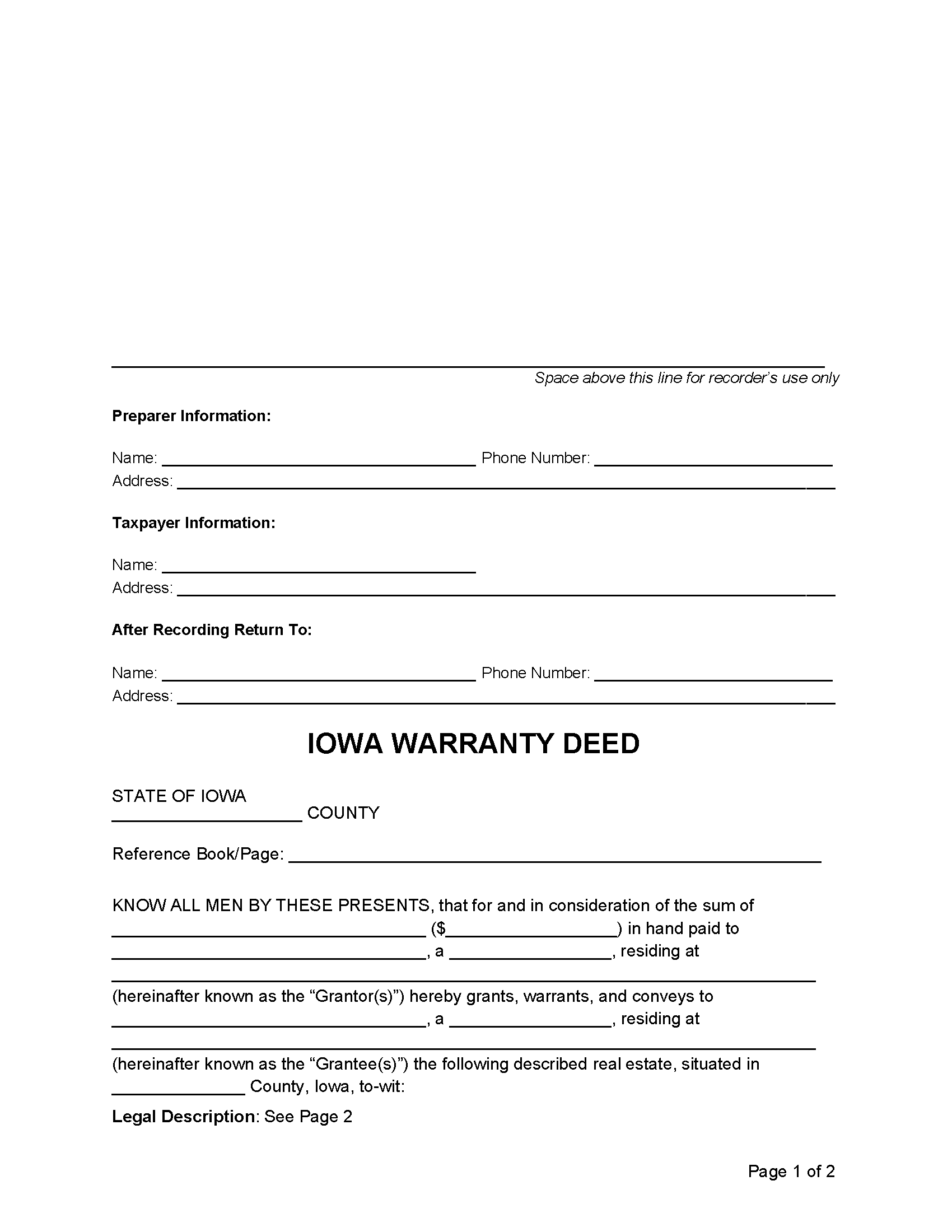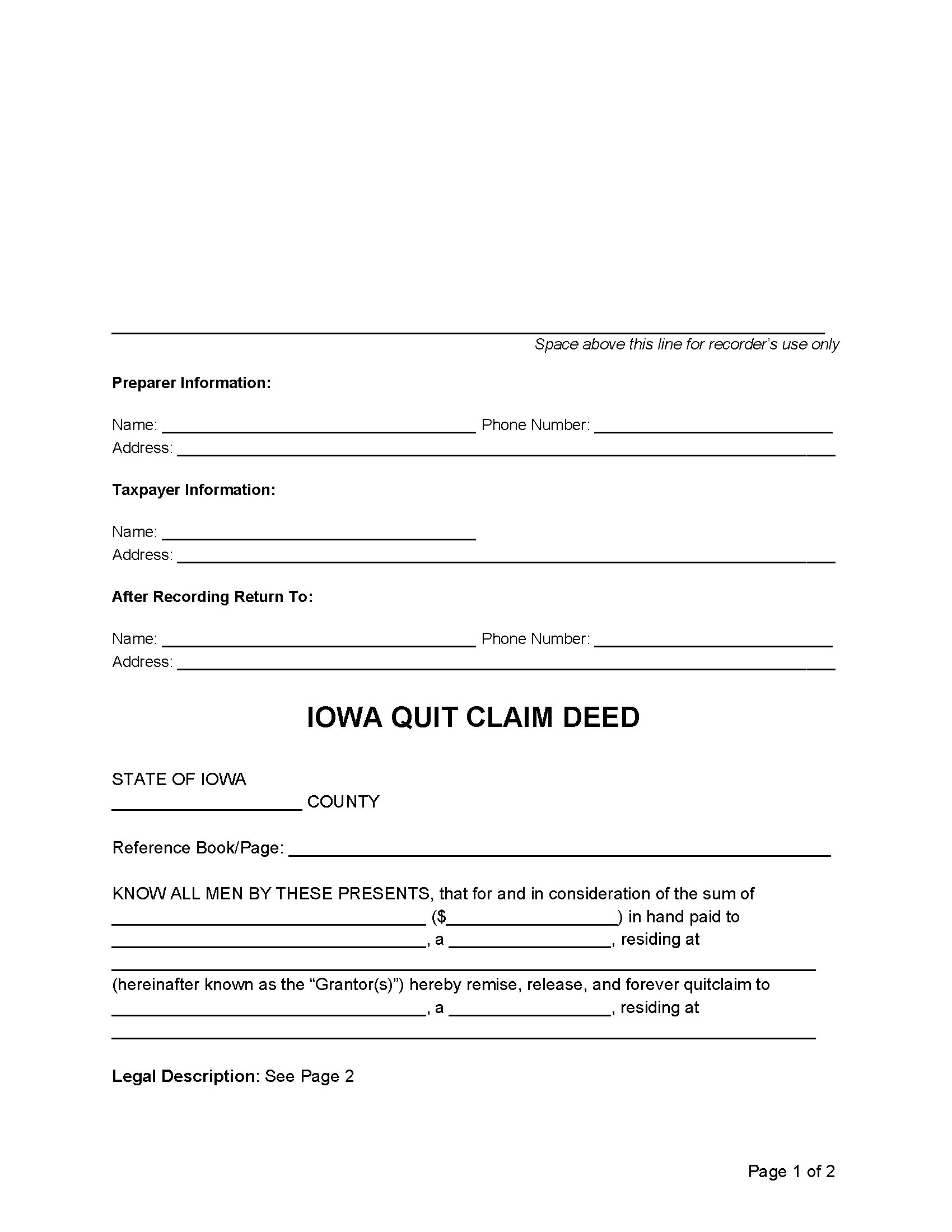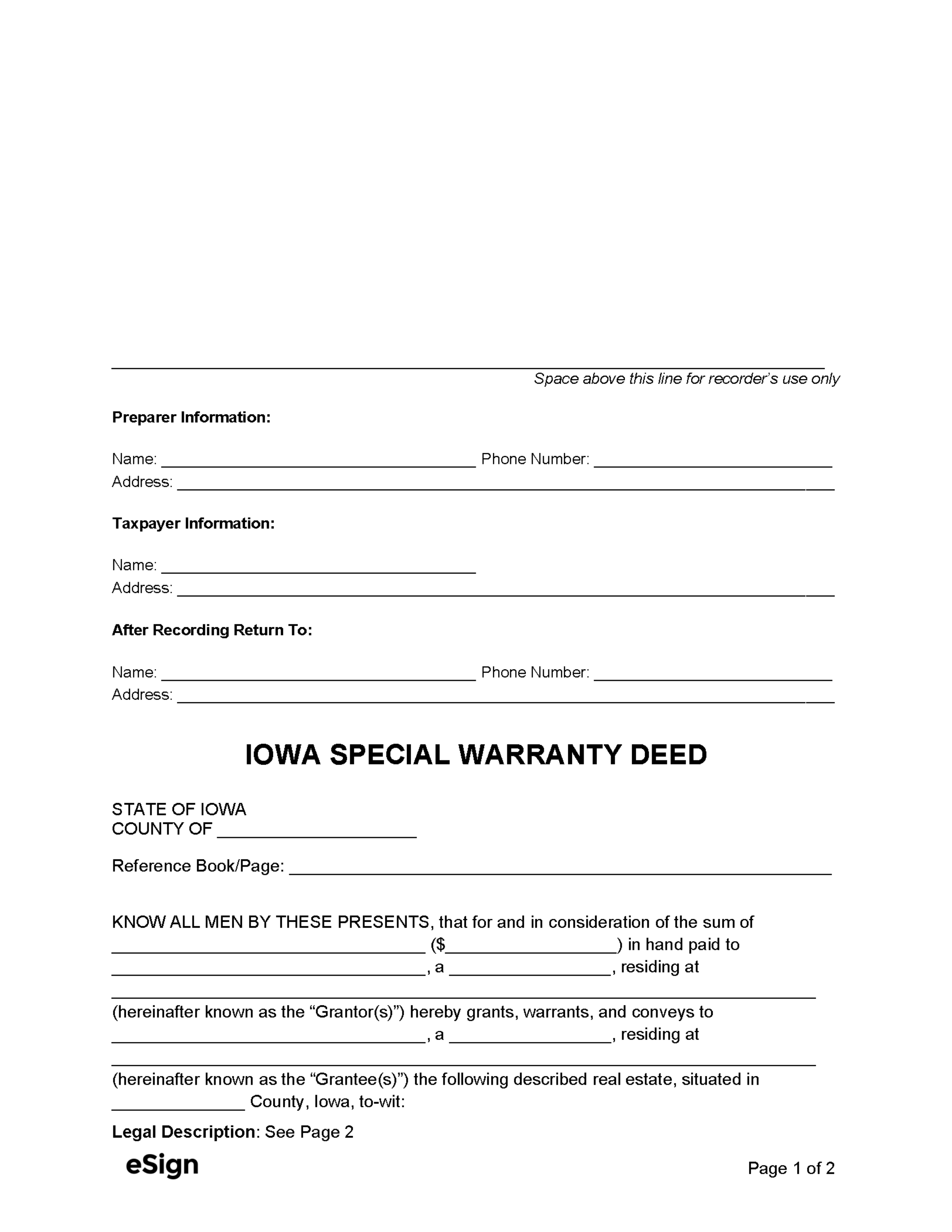By Type (4)
 Deed of Trust – Puts a property title under the care of a trustee as security on a lender’s expense to a borrower. Deed of Trust – Puts a property title under the care of a trustee as security on a lender’s expense to a borrower.
|
 General Warranty Deed – Guarantees the quality of the property’s title, meaning that it is free of any claims. General Warranty Deed – Guarantees the quality of the property’s title, meaning that it is free of any claims.
|
 Quit Claim Deed – A deed that provides no warranty to the grantee regarding the property’s title. Quit Claim Deed – A deed that provides no warranty to the grantee regarding the property’s title.
|
 Special Warranty Deed – Only warrants that there are no title defects from the current owner’s time as title holder. Special Warranty Deed – Only warrants that there are no title defects from the current owner’s time as title holder.
|
Formatting
Paper – White, 20lb weight minimum, no watermarks, no larger than 8.5″ x 14″
Margins – 3″ top margin of first page, all other margins at least 3/4″
Font – Pre-printed text: at least 8pt. Inputted text: at least 10pt.[1]
Recording
Signing Requirements – The deed must be acknowledged by a notary public.[2]
Where to Record – Deeds are filed at the County Recording Office for the county where the property is located.
Cost – $7 for one page, $5 for each additional page (as of this writing). Other fees and transfer taxes may also apply.[3]
Additional Forms
Declaration of Value – Discloses the property value, type of sale, classification, and assessment. Required unless transfer is exempt (see instructions).[4]
Groundwater Hazard Statement – Disclose whether any groundwater hazards are present on the property. Must be attached to Declaration of Value unless exempt.[5]
